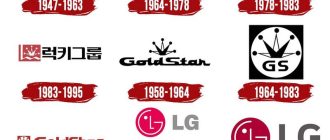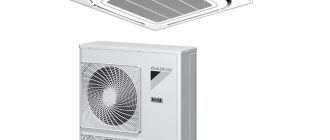Who are Daikin competitors?
Know Who Competes with Daikin Air Conditioning Systems
Rivals: Manufacturers who pose a threat to Daikin in the air conditioning industry.
Contenders: Competing brands that challenge Daikin’s market share.
Opponents: Companies that stand in direct competition with Daikin for customers.
Competition: The fierce rivalry that exists between Daikin and other air conditioning manufacturers.
Adversaries: Competitors who constantly strive to outperform Daikin in the market.
Challengers: Brands that challenge Daikin’s dominance in the air conditioning sector.
Stay informed about the top competitors of Daikin and make the best decision for your air conditioning needs!
“Keep your friends close, but your competitors closer.”
Top Competitors of Daikin
Daikin Air Conditioning Systems faces stiff competition in the market from various competitors, adversaries, challengers, rivals, and contenders. Here are some of the top competitors of Daikin:
| Mitsubishi Electric | Mitsubishi | Mitsubishi Electric Corporation |
| LG Electronics | LG | LG Electronics Inc. |
| Carrier | Carrier | Carrier Corporation |
| Lennox | Lennox | Lennox International Inc. |
| Fujitsu General | Fujitsu | Fujitsu General Ltd. |
These competitors provide tough competitions to Daikin in the air conditioning systems industry. Customers have a wide range of choices when it comes to choosing the right brand and manufacturer for their cooling needs. It’s important to carefully compare the features, pricing, and reliability of these brands before making a final decision.
Competitors in the Air Conditioning Systems Industry
In the highly competitive air conditioning systems industry, Daikin faces a number of formidable contenders and adversaries. These companies offer their own high-quality products and services, posing strong competitions for Daikin.
Some of the major challengers in the market include well-established rivals such as Carrier, Mitsubishi Electric, and Lennox. These companies have established themselves as leading players in the industry and have built strong brand reputations.
In addition to these competitors, there are several other prominent brands and manufacturers that Daikin must contend with. These include Trane, Fujitsu General, LG Electronics, and Samsung. Each of these companies brings its own unique strengths and innovative solutions to the market.
To stay ahead in this competitive landscape, Daikin must consistently strive to deliver superior products and services to its customers. By constantly innovating and meeting the evolving needs of the industry, Daikin can successfully outperform its opponents and maintain its position as a leader in the air conditioning systems industry.
Choose Daikin for top-quality air conditioning systems and reliable, efficient performance.
Key Competitors of Daikin in the Market
In the highly competitive market of air conditioning systems, Daikin faces several strong competitors, each offering their own unique products and services. These key competitors include:
1. Competitions: Competitions is a well-known manufacturer of air conditioning systems, providing reliable products at competitive prices.
2. Rivals: Rivals is another major player in the market, known for their innovative designs and energy-efficient solutions.
3. Manufacturers: Several other manufacturers, such as AC Tech and Cool Air, are also competing in the market, offering a wide range of options to customers.
4. Adversaries: Adversaries is a leading competitor, known for their cutting-edge technology and commitment to customer satisfaction.
5. Competitors: Competitors is a well-established brand, offering high-quality air conditioning systems with excellent performance and durability.
6. Challengers: Challengers is a rising star in the market, known for their innovative features and competitive pricing.
7. Contenders: Contenders is another strong competitor, offering a diverse range of products and exceptional after-sales service.
8. Brands: Finally, various other brands, such as Climate Control and AirTech, also compete in the air conditioning market, providing customers with multiple choices.
In such a competitive market, Daikin continuously strives to differentiate itself from its competitors through superior product quality, innovative technology, and exceptional customer service.
Major Competitors in the HVAC Industry
In the highly competitive HVAC industry, Daikin faces stiff competition from several other brands, contenders, challengers, rivals, and adversaries. These companies aim to capture a significant share of the market and offer comparable air conditioning systems to customers.
Among the top competitors of Daikin are renowned manufacturers that have established themselves in the industry. These competitors include:
- Carrier Corporation: With a strong presence in the global market, Carrier Corporation is one of the leading competitors of Daikin. They offer a wide range of HVAC solutions and are known for their innovative technology.
- Trane Inc.: Trane Inc. is another major player in the HVAC industry and competes directly with Daikin. They provide reliable and energy-efficient air conditioning systems that meet the diverse needs of customers.
- Mitsubishi Electric: Mitsubishi Electric is a well-known name in the industry and offers high-quality air conditioning systems that rival Daikin’s products. They are known for their advanced features and energy-saving technology.
- Lennox International: Lennox International is a trusted competitor in the HVAC industry, known for their range of reliable and innovative air conditioning systems. They are focused on delivering superior comfort and efficiency to customers.
- Johnson Controls: Johnson Controls is a global leader in the HVAC industry and competes with Daikin by offering a comprehensive range of air conditioning solutions. They specialize in energy management and control systems.
These major competitors, along with other manufacturers, create a highly competitive landscape in the HVAC industry. Customers benefit from the wide range of options available to them, as these companies continuously strive to improve and innovate their products to meet the evolving needs of the market.
It is important for consumers to consider these competitors and their offerings when choosing an air conditioning system, as it allows for better comparison and selection of the most suitable product for their specific requirements.
Know Who Competes with Daikin
When it comes to air conditioning systems, Daikin is a reputable and well-known brand. However, it is always helpful to know who its competitors are in order to make an informed decision. Here are some of the top rivals, adversaries, brands, opponents, contenders, competitions, manufacturers, and competitors that you should be aware of:
- 1. Carrier: Known for its innovative technology and high-quality solutions, Carrier is a strong competitor in the air conditioning industry.
- 2. Mitsubishi Electric: With a wide range of products and a strong focus on energy efficiency, Mitsubishi Electric is a notable competitor.
- 3. LG Electronics: LG prides itself on offering advanced and stylish air conditioning systems, making it a strong contender in the market.
- 4. Fujitsu General: Fujitsu General is known for its reliable and efficient air conditioning solutions, providing tough competition to Daikin.
- 5. Trane: A well-established brand with a reputation for durability and performance, Trane is a worthy competitor in the industry.
These are just a few examples of the competitors that Daikin faces in the air conditioning market. By understanding the strengths and offerings of these brands, you can make a more informed decision when looking for an air conditioning system that suits your needs.
Analysis of Daikin’s Competitors
In the highly competitive market of air conditioning systems, Daikin faces several formidable brands, challengers, opponents, manufacturers, adversaries, rivals, and competitions. Understanding the landscape of Daikin’s competitors is essential to maintaining a competitive edge in the industry.
One of Daikin’s top competitors is Mitsubishi Electric, a renowned manufacturer of air conditioning systems. Mitsubishi Electric offers a wide range of innovative and energy-efficient products that pose a significant challenge to Daikin’s market position.
Another noteworthy competitor is Carrier, a well-established brand with a long history in the HVAC industry. Carrier offers a comprehensive lineup of high-quality air conditioning systems that compete directly with Daikin’s offerings.
Trane, a leading provider of HVAC solutions, also presents strong competition for Daikin. With a reputation for reliability and advanced technology, Trane’s products are often considered as alternatives to Daikin’s systems.
Lennox, a trusted brand recognized for its commitment to quality and customer satisfaction, is another major competitor in the air conditioning market. Lennox’s innovative products and extensive distribution network make it a formidable opponent for Daikin.
Other notable competitors include Fujitsu, LG Electronics, Samsung, and Panasonic, all of which have established themselves as contenders in the HVAC industry. Each of these brands offers unique features, competitive pricing, and a strong presence in different markets.
In summary, Daikin faces a multitude of strong competitors in the air conditioning market. To maintain its position as a leader in the industry, Daikin must continuously innovate, provide exceptional products and services, and adapt to the changing demands of consumers.
Competitors’ Product Offerings
When it comes to air conditioning systems, Daikin faces tough competition from various manufacturers and brands in the market. These competitors offer their own unique products that aim to provide effective and efficient cooling solutions to customers.
1. Major Competitions:
Some of the major competitors of Daikin in the air conditioning industry include:
– Manufacturers: Mitsubishi Electric, Panasonic, LG Electronics, Fujitsu General
– Rivals: Carrier Corporation, Trane Technologies, Rheem, Lennox International
2. Contenders in the Market:
There are also several contenders who strive to compete with Daikin by offering innovative and advanced cooling technologies. These competitors include:
– Adversaries: Samsung Electronics, Hitachi, Toshiba
– Challengers: Gree Electric Appliances, Midea Group, Haier Group
Each of these competitors has their own range of air conditioning systems with unique features and specifications to meet the diverse needs of customers. It is important for customers to evaluate the offerings of these competitors and choose the one that best suits their requirements.
Competitive Advantage of Daikin
Daikin has established itself as a leading player in the industry by outperforming its competitors and consistently delivering high-quality air conditioning systems. With a strong focus on innovation, reliability, and customer satisfaction, Daikin has managed to surpass its adversaries and maintain its position as a market leader.
When it comes to competitions in the air conditioning market, Daikin faces a range of competitors, including other manufacturers and brands. However, Daikin has been able to stay ahead of its rivals by constantly pushing the boundaries of technology and introducing cutting-edge features and functionality in its products.
| 1. Superior Performance | Daikin air conditioning systems are known for their exceptional performance, providing efficient cooling and heating solutions even in extreme weather conditions. |
| 2. Energy Efficiency | Daikin products are designed to be highly energy-efficient, helping customers save on electricity bills while reducing their carbon footprint. |
| 3. Innovative Technology | Daikin invests heavily in research and development to stay ahead of competitors, constantly introducing new technological advancements in its air conditioning systems. |
| 4. Wide Range of Products | Daikin offers a diverse portfolio of air conditioning solutions, catering to both residential and commercial customers with different needs and requirements. |
| 5. Global Presence | Daikin has a strong international presence, with a widespread network of dealers and distributors, ensuring easy access to its products and services worldwide. |
With these advantages, Daikin has emerged as a top contender in the air conditioning industry, consistently surpassing its challengers and maintaining its status as a trusted and reliable brand. Customers can confidently choose Daikin for their air conditioning needs, knowing they are getting a superior product backed by years of excellence and innovation.
Air Conditioning Systems
When it comes to air conditioning systems, Daikin is a trusted brand known for its innovative and high-quality products. However, they are not the only player in the market. There are several challengers and rivals that compete with Daikin in the industry.
One of the main contenders of Daikin is Mitsubishi Electric, a well-known manufacturer of air conditioning systems. Mitsubishi Electric offers a wide range of products that are known for their energy efficiency and advanced features.
Another strong competitor in the market is Carrier, a leading brand in the HVAC industry. Carrier air conditioning systems are known for their reliability and durability, making them a popular choice among consumers.
Trane is another brand that competes with Daikin in the market. Trane is known for its innovative technology and high-performance air conditioning systems that provide superior comfort and efficiency.
LG Electronics is also a major competitor of Daikin. LG offers a diverse range of air conditioning systems with advanced features and stylish designs, catering to the needs of different customers.
Other notable competitors in the air conditioning system market include Fujitsu, Lennox, York, and Panasonic. These brands have established themselves as strong adversaries to Daikin, offering a variety of products that meet the diverse requirements of consumers.
In a market filled with stiff competitions, Daikin has managed to stand out with its commitment to quality and innovation. However, it is essential for consumers to consider all the available options and compare different brands before making a purchase decision.
| Mitsubishi Electric | Energy efficiency, advanced features |
| Carrier | Reliability, durability |
| Trane | Innovative technology, high performance |
| LG Electronics | Advanced features, stylish designs |
| Fujitsu | … |
| Lennox | … |
| York | … |
| Panasonic | … |
Overview of Air Conditioning Systems
Air conditioning systems have become an essential part of modern living, providing a comfortable and temperature-controlled environment. With the increasing demand for efficient cooling solutions, a number of manufacturers and brands have emerged in the market to meet the needs of consumers.
These rivals, competitors, and challengers to Daikin Air Conditioning Systems offer a range of options and technologies to cater to different requirements and preferences. Some of the top competitors of Daikin include leading manufacturers such as Mitsubishi Electric, Panasonic, LG, and Samsung.
Each of these competitors brings their unique products, features, and innovations to the market, creating healthy competition and driving continuous improvement in the industry. Consumers can choose from a variety of models and configurations offered by these opponents, ensuring they find the perfect air conditioning system for their specific needs.
From ductless mini-split systems to central air conditioning units, the market is filled with options from these contenders. Whether it’s energy efficiency, quiet operation, or advanced control features, these brands strive to deliver the best performance and convenience to their customers.
Competition among these manufacturers not only benefits consumers by offering a wide range of choices but also leads to advancements in technology and increased affordability. The market for air conditioning systems is constantly evolving, with new players entering the field and established competitors pushing the boundaries of innovation.
When exploring the world of air conditioning systems, it’s important to consider the offerings of these competitors alongside Daikin. By comparing features, prices, and customer reviews, consumers can make informed decisions and select the air conditioning system that best suits their needs and preferences.
In conclusion, the air conditioning industry is filled with competitors, rivals, and challengers to Daikin Air Conditioning Systems. This healthy competition drives innovation, affordability, and choice, ultimately benefiting consumers who seek the perfect climate control solution for their spaces.
Different Types of Air Conditioning Systems
When it comes to air conditioning systems, there are various manufacturers and competitors in the market. Daikin, a leader in the industry, faces tough competition from other companies that also produce high-quality air conditioning systems. These adversaries, rivals, contenders, opponents, and challengers offer different types of air conditioning systems to cater to the diverse needs of consumers.
One type of air conditioning system is the central air conditioning system, which is commonly used in larger residential or commercial buildings. This system works by distributing cool air through a series of ducts and vents, providing consistent and efficient cooling throughout the entire space. Manufacturers like Carrier, Trane, and Lennox are some of the top competitors in this category.
Another type of air conditioning system is the split system, which consists of an indoor unit and an outdoor unit. The indoor unit is responsible for cooling the air, while the outdoor unit removes the heat. This type of system is commonly found in residential properties and offers flexibility in terms of installation and cooling capacity. Competitors like Mitsubishi Electric, LG, and Samsung offer split system air conditioning units that are known for their innovation and energy efficiency.
Window air conditioning units are also a popular choice, especially for smaller spaces or single rooms. These units are installed in a window or a hole in the wall and provide localized cooling. Manufacturers like Frigidaire, Haier, and GE are some of the top competitors in this category, offering window units with different cooling capacities and features.
Ductless mini-split systems are another type of air conditioning system that has gained popularity in recent years. These systems consist of an indoor unit mounted on the wall or ceiling and an outdoor unit. They offer the advantage of individual temperature control in different rooms or zones, making them suitable for homes or buildings with specific cooling needs. Competitors like Fujitsu, Gree, and Panasonic provide ductless mini-split systems with advanced features and energy-saving technologies.
In conclusion, the air conditioning market is filled with manufacturers, competitions, and competitors who offer a wide range of air conditioning systems. Whether it’s a central air conditioning system, a split system, a window unit, or a ductless mini-split system, consumers have plenty of options to choose from. Daikin, along with its top competitors, continues to innovate and provide high-quality air conditioning solutions for residential and commercial use.
Key Features of Air Conditioning Systems
Air conditioning systems come with a range of features that distinguish them from their competitors, providing enhanced comfort and convenience. Here are some key features to consider when choosing an air conditioning system:
1. Energy Efficiency: Leading manufacturers in the industry, such as Daikin, prioritize energy efficiency in their air conditioning systems. These systems are designed to consume less electricity while delivering optimal cooling performance, reducing energy costs in the long run.
2. Smart Technology: Many brands offer air conditioning systems equipped with smart technology, allowing users to control their unit remotely via smartphones or other connected devices. This feature offers convenience and flexibility, enabling users to adjust temperature settings, schedule cooling cycles, and monitor energy usage from anywhere.
3. Quiet Operation: Air conditioning systems that produce minimal noise during operation provide a more peaceful and comfortable indoor environment. Rival brands, including Daikin, invest in noise reduction technology to minimize disruption, ensuring a quieter living or working space.
4. Effective Cooling: The efficiency of an air conditioning system in cooling a room or space is crucial. Daikin and other leading adversaries in the market develop systems with advanced cooling capabilities to ensure rapid and even cooling distribution, maintaining a consistently comfortable temperature throughout the area.
5. Air Purification: Some air conditioning systems offer built-in air purification features, filtering out airborne pollutants and allergens, and improving indoor air quality. These systems are beneficial for those with allergies or respiratory conditions, ensuring a cleaner and healthier environment.
6. Environmental Consciousness: Many manufacturers, including challengers to Daikin, focus on sustainability and environmental friendliness in their air conditioning systems. They incorporate eco-friendly refrigerants and utilize energy-saving technologies to minimize carbon footprint and promote greener living.
When comparing air conditioning systems, it is important to consider these key features in order to find the most suitable option that meets your specific requirements and preferences.
Q&A:
Who are the top competitors of Daikin air conditioning systems?
The top competitors of Daikin air conditioning systems include Carrier, Mitsubishi Electric, Trane, and LG.
How does Daikin air conditioning systems compare to Carrier?
Daikin air conditioning systems are known for their high energy efficiency and advanced technology, while Carrier is known for its reliability and durability. Both brands offer a wide range of options for residential and commercial applications.
What are the advantages of Daikin air conditioning systems compared to competitors like Mitsubishi Electric?
Some advantages of Daikin air conditioning systems over Mitsubishi Electric include better energy efficiency, quieter operation, and a wider range of models and features to choose from. Daikin also has a strong reputation for quality and reliability.
Is Trane a better choice than Daikin air conditioning systems?
Both Trane and Daikin are reputable brands that offer high-quality air conditioning systems. The choice between the two will depend on individual needs and preferences, as well as factors such as budget and the specific requirements of the installation.
How does LG air conditioning systems compare to Daikin?
LG air conditioning systems are known for their innovative features and stylish designs. While Daikin also offers advanced technology and energy efficiency, LG may be a preferred choice for those seeking a more sleek and modern look in their air conditioning system.





